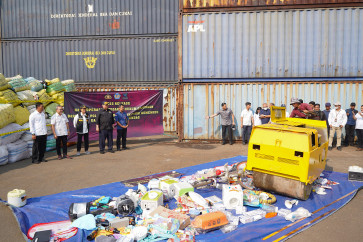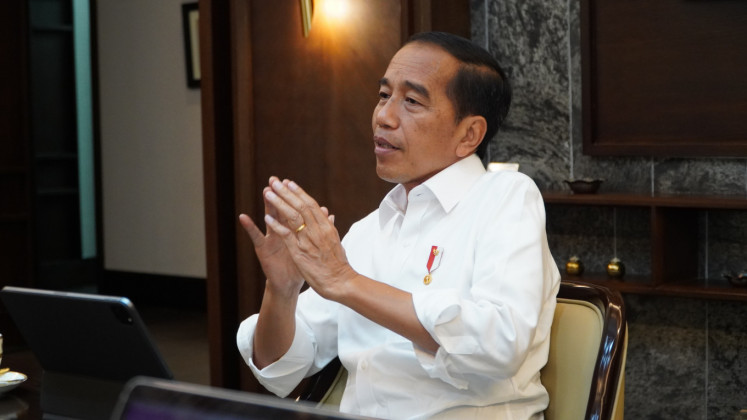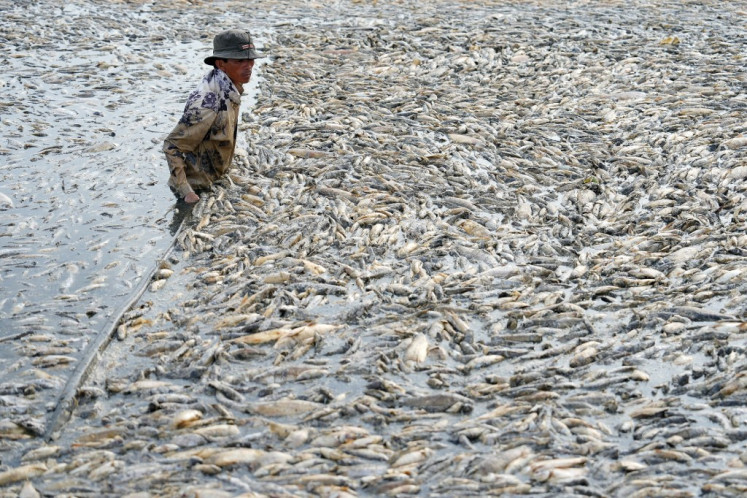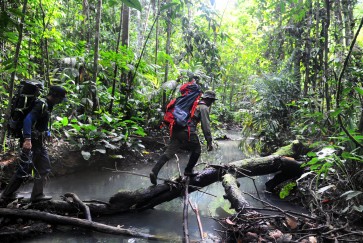Carbon taxes: Don’t miss the forest for the trees
The concept of carbon taxes, in fact, is often poorly understood.
Change Size
 This picture taken on May 9, 2017 shows a team of Indonesian forest rangers making their way through the Leuser ecosystem rainforest, located mostly within the province of Aceh on the northern tip of the island of Sumatra. Scientists and conservationists consider the Leuser Ecosystem to be among the most important forests left in Southeast Asia, particularly because it is the last place of sufficient size and quality to support viable populations of rare species like Sumatran tigers, orangutans, rhinos, elephants, clouded leopards and sun bears. (AFP/Chaideer Mahyuddin)
This picture taken on May 9, 2017 shows a team of Indonesian forest rangers making their way through the Leuser ecosystem rainforest, located mostly within the province of Aceh on the northern tip of the island of Sumatra. Scientists and conservationists consider the Leuser Ecosystem to be among the most important forests left in Southeast Asia, particularly because it is the last place of sufficient size and quality to support viable populations of rare species like Sumatran tigers, orangutans, rhinos, elephants, clouded leopards and sun bears. (AFP/Chaideer Mahyuddin)
R
ecently, discussions on carbon policy in Indonesia have focused on carbon taxes, with some companies protesting that the new tax burden is too heavy, and the appearance of headlines such as “Indonesia’s Proposed Carbon Tax Bill Reveals Risk to GDP Growth”.
This focus is unfortunate, as by telling just one part of Indonesia’s climate policy story, it risks jeopardizing the support of the Indonesian public for climate action.
It is worth noting that the Indonesian Chamber of Commerce and Industry (Kadin) backs the government’s climate change initiative. However, Kadin rightly states that carbon taxes cannot stand on their own, but must be part of a broader policy framework.
It is understandable that many businesses feel concerned about this, as we do not yet know what this framework will look like. But it is by now well understood what would work best – a cap-and-trade system – with well-functioning markets that enable trade in spot, forward and futures contracts (for carbon credits, renewable energy certificates and other instruments) and good access to climate finance.
Carbon taxes are just a small part of such a system, and if well-designed, the positive impacts of good marketplaces will more than offset the costs of carbon taxes. The government has repeatedly said Indonesia will introduce a cap-and-trade system, and while so far it has not divulged how it will work, why already assume it will be poorly designed? Hopefully we will soon learn more, and in the meantime we can be optimistic.
As long as all countries do what is necessary to keep global warming in check (in a business-as-usual scenario, by 2100 most coastal cities will be inundated and Kalimantan may have turned into a desert), Indonesia is well placed to see its economic growth benefit from its unique position in the world as a powerhouse for the global provision of climate solutions. Focusing on carbon taxes risks blinding people to this opportunity.
The concept of carbon taxes is, in fact, often poorly understood.
















